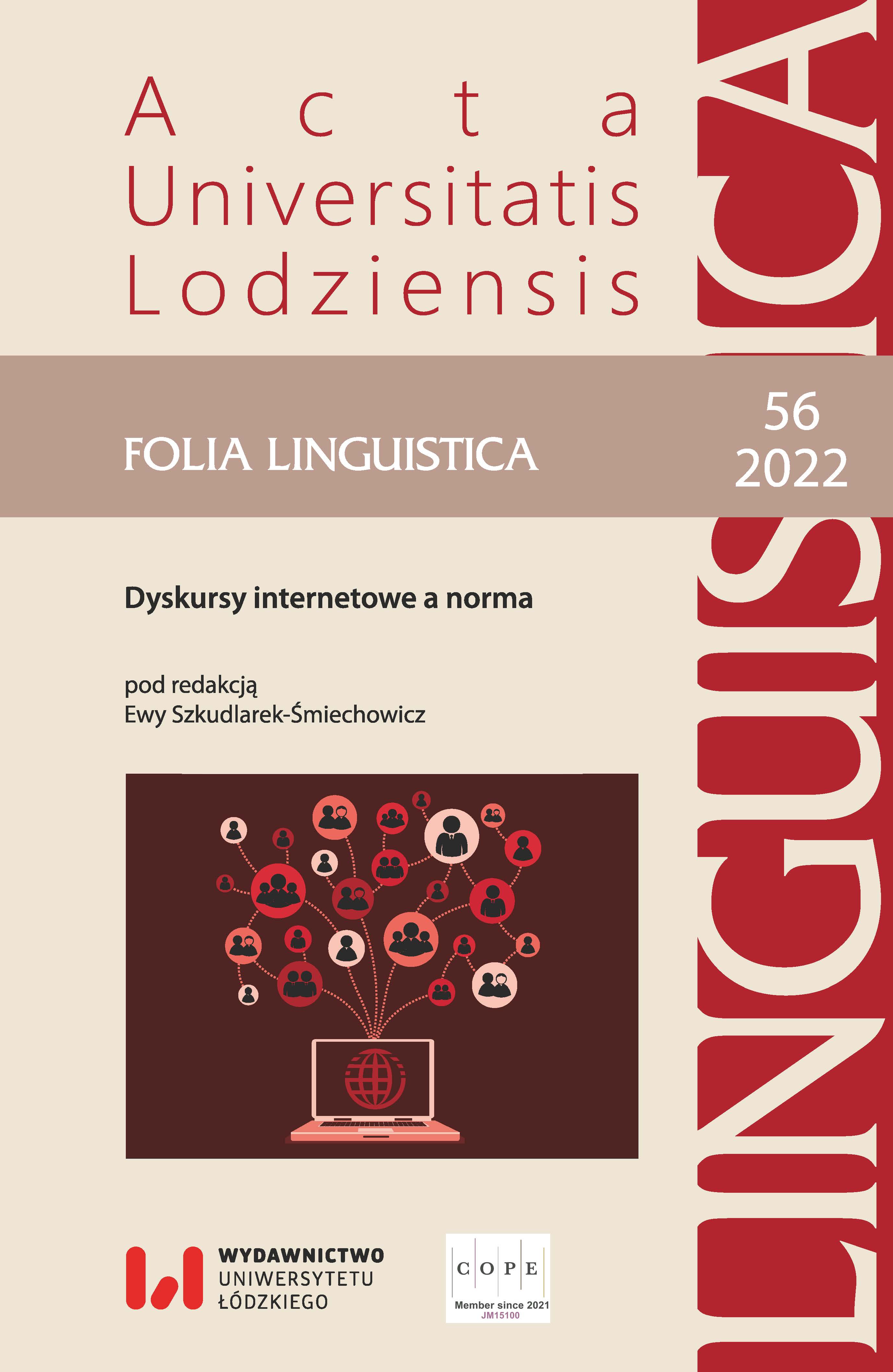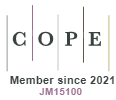Drodzy Redaktorzy, Hej!, Szanowni… Inicial polite phrases used in the Facebook group for proofreaders and language editors
DOI:
https://doi.org/10.18778/0208-6077.56.15Keywords:
etiquette, politeness in language, greetings formulas, addressative forms, proofreader, editorAbstract
This article presents how the politeness norms are followed by proofreaders and language editors who are talking to each other in a professional discussion group (the most representative among the groups for editors and proofreaders in Poland) on the Facebook social networking site. The material comes mainly from April and May 2021 and includes addressative forms and greetings formulas — with particular emphasis on the phrase witam. Moreover, there are discussed the preferences of this professional group’s representatives regarding the choice of the type of relationship (per ty ‘you’ or per pan/pani ‘sir/madam’). The analysis of the material allows us to conclude that members of the self-help community are more likely than in other groups to choose the per pan/pani relationship (although still with the advantage of the per ty relationship) and most often give up traditional greetings and addressative formulas.
Downloads
References
Encyklopedia PWN, https://encyklopedia.pwn.pl (dostęp: 1.06.2021).
Google Scholar
Ginter J., 2022, O nadużyciach wielkiej litery w pisowni zaimków — na współczesnych przykładach, w: A.S. Dyszak (red.), Polszczyzna w różnych jej aspektach, A. Paluszak-Bronka (red.), Język polski dawniej i dziś, Bydgoszcz: Wydawnictwo Uniwersytetu Kazimierza Wielkiego, s. 69–83.
Google Scholar
Grzenia J., 2006, Komunikacja językowa w Internecie, Warszawa: Wydawnictwo Naukowe PWN.
Google Scholar
Kępa-Figura D., 2021, Grzeczność językowa w polskich mediach społecznościowych — zarys problemu, „Socjolingwistyka” 35, s. 171–187. https://doi.org/10.17651/SOCJOLING.35.10
Google Scholar
DOI: https://doi.org/10.17651/SOCJOLING.35.10
Kielban Ł., 2014, Netykieta. Kultura komunikacji w sieci, b.m.w.: http://www.CzasGentlemanow.pl
Google Scholar
Kita M., 2016, „Grzeczność wszystkim należy, lecz każdemu inna”. O wielości odmian grzeczności językowej, „Postscriptum Polonistyczne” 1(17), s. 193–212.
Google Scholar
Kostro M., Wróblewska-Pawlak K., 2013, Formy adresatywne jako środek jawnej i ukrytej deprecjacji kobiet polityków w polskim dyskursie polityczno-medialnym, „Tekst i Dyskurs / Text und Diskurs” 6, s. 153–168.
Google Scholar
Marcjanik M., 2008, Grzeczność w komunikacji językowej, Warszawa: Wydawnictwo Naukowe PWN.
Google Scholar
Marcjanik M., 2020, Słownik językowego savoir-vivre’u, Warszawa: Wydawnictwa Uniwersytetu Warszawskiego. https://doi.org/10.31338/uw.9788323540717
Google Scholar
DOI: https://doi.org/10.31338/uw.9788323540717
Piechnik A., 2021a, Grzecznościowe formuły pożegnalne stosowane w sytuacji oficjalnej (na przykładzie e-maili nauczycieli do rodziców), „Język Polski” 4, s. 90–99. https://doi.org/10.31286/JP.101.4.7
Google Scholar
DOI: https://doi.org/10.31286/JP.101.4.7
Piechnik A., 2021b, Od dystansu do poufałości. Formuły powitalne w listach elektronicznych kierowanych przez nauczycieli do rodziców, „Slavia Meridionalis” 21, https://ispan.waw.pl/journals/index.php/sm/article/download/sm.2394/7205 (dostęp: 1.06.2021). https://doi.org/10.11649/sm.2394
Google Scholar
DOI: https://doi.org/10.11649/sm.2394
Poradnia Językowa PWN, https://sjp.pwn.pl/poradnia (dostęp: 1.06.2021).
Google Scholar
Smoleń-Wawrzusiszyn M., 2008, Ironia i kpina w komentarzach internetowych, „Roczniki Humanistyczne” 6, s. 117–128.
Google Scholar
Downloads
Published
How to Cite
Issue
Section
License

This work is licensed under a Creative Commons Attribution-NonCommercial-NoDerivatives 4.0 International License.










